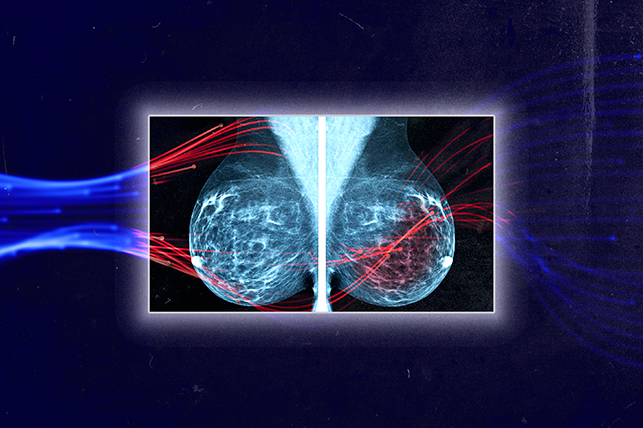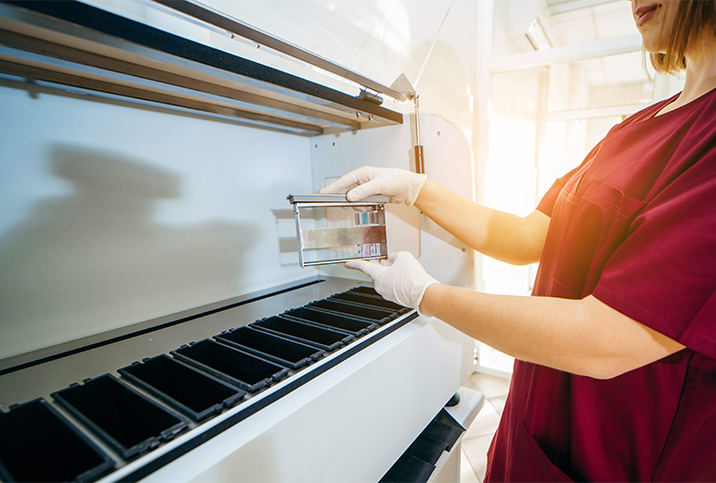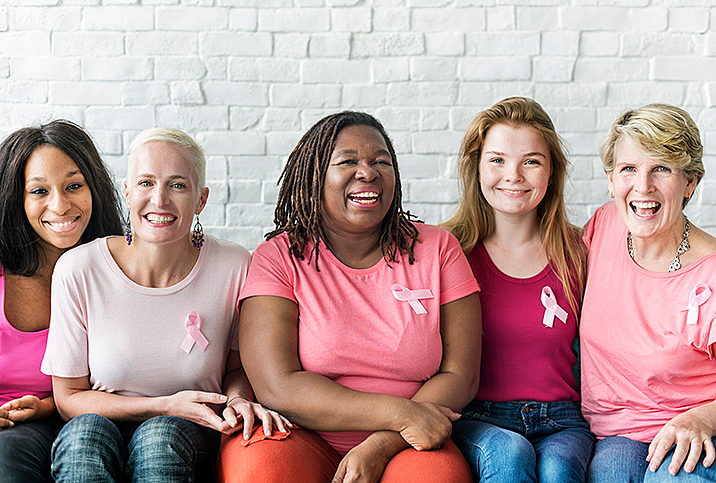AI Can Accurately Diagnose Breast Cancer, Study Finds

To illustrate the urgent need for breast cancer screening in underserved populations, Thomas J. Marini, M.D., a radiologist at the University of Rochester Medical Center (URMC), cites research from rural Peru.
In the study of 113 breast cancer cases, 105 were self-detected. In other words: Limited access to mammographic screening in the developing nation meant breast cancer went undetected until patients detected physical signs and symptoms themselves.
That's a problematic gap because "the idea is to diagnose cancer before you can feel it," Marini said.
The earlier breast cancer is detected, the more treatment options are available and the better the chance of survival.
Lack of access to mammogram technology
This isn't a problem unique to Peru.
"The Pan American Health Organization estimates that about two-thirds of the world lacks access to any form of diagnostic imaging; not just MRI and mammography, but simple things like ultrasound and X-ray," Marini said.
The organization estimates that 70 percent to 80 percent of diagnostic problems could be resolved if X-rays or ultrasounds were available.
However, it's not just the equipment that's lacking.
"The impact of breast ultrasound is limited by a bottleneck of trained sonographers to acquire imaging and radiologists to interpret the images," Marini said.
To make high-quality diagnostic imaging and services accessible in low-resource areas, Marini and his fellow URMC researchers have a solution: an artificial intelligence (AI)-based tool that can diagnose breast cancer automatically without the need for a sonographer or radiologist.
The researchers conducted a study that revealed the potential of the system to accurately detect palpable breast lumps. For the research, the team used a portable Butterfly iQ ultrasound probe, a portable and low-cost alternative to mammography. The handheld device can be connected to a phone or tablet, and costs about $2,000 (compared with the $150,000-plus price tag of high-end machines, Marini noted).
For the study, volume sweep imaging (VSI) was used in place of a sonographer.
"VSI is a specialized approach to acquiring ultrasound images," Marini explained. "It involves the use of a simple ultrasound protocol based on external body landmarks, in this case, the breast lump."
Importantly: "People can learn to do VSI over minutes to hours instead of the years needed to train a sonographer," Marini emphasized.
Instead of a radiologist, the researchers used Samsung's S-Detect AI—an AI system developed as a tool for diagnostic analysis of breast masses—to interpret images.
The researchers tested the performance of the S-Detect using VSI images acquired by medical students who had no prior ultrasound knowledge and were taught to do basic sweeps using the Butterfly iQ device in a two-hour training session. Meanwhile, traditional standard-of-care ultrasounds were performed by a trained sonographer using a high-end ultrasound machine.
The researchers then compared the students' results to the pathological diagnosis, a standard-of-care ultrasound report by an expert radiologist, a standard-of-care ultrasound S-Detect report, and a VSI report by an expert radiologist.
The results are promising
For cancers, cysts, fibroadenomas and lipomas, there was "substantial" agreement between the S-Detect interpretation of VSI and the expert-conducted, standard-of-care ultrasound report. All pathologically proven cancers were identified as "possibly malignant" by S-Detect with a sensitivity of 100 percent and specificity of 86 percent. Sensitivity refers to the proportion of cases correctly identified as cancer without false negatives, while specificity refers to the percent of cases correctly identified as not having cancer without false positives.
"The gold standard will always be that everyone deserves the highest quality of care: an experienced sonographer using a high-end ultrasound machine," Marini said. "But the reality is that this is just not the world that we're living in. We need ways to bridge that gap until we have that reality where everyone can have an experienced sonographer doing the exam.
"In the meantime, this is a really, really promising approach where you can really help a lot of people," Marini said. "Since breast cancer's an urgent crisis in low- and middle-income countries right now, this is something that we have available to us right now."


















